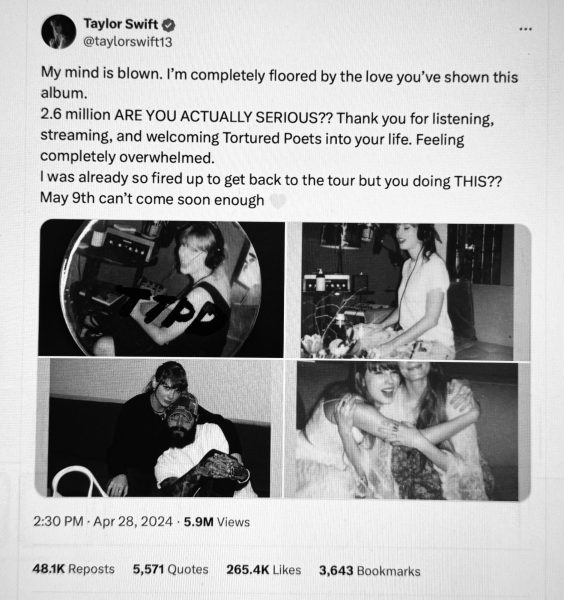Chronic ills a tough battle
There are countless illnesses people can be diagnosed with. Some are mild and easily cured, some severe and life threatening, some very well known and some that are rare and unrecognized.
One impacts me on a personal level — chronic illness. It is pervasive, complicated, debilitating and typically incurable. What can be just as bad as the symptoms — which can be embarrassing, painful and tiring — are the questions people ask.
I was diagnosed with Crohn’s Disease when I was in high school. It is an autoimmune disease, meaning the body fights itself. For some unknown reason, with Crohn’s, the immune system attacks the good bacteria in the digestive tract causing a great deal of inflammation and pain.
The symptoms don’t stop there: loss of appetite, bathroom issues, nausea, inflammation of other body parts (gums, eyes). There are also complications that come with the intense treatment regimen of immunosuppressants and anti-inflammatories because Crohn’s is incurable.
Dealing with this for six years has been extremely difficult, especially for school and social situations, attempting to hide embarrassing symptoms and avoiding using the bathroom at friends’ houses.
My good friends became supportive and educated, making sure I’d be OK and getting missed notes or homework for me if I missed classes. However, there are not as thoughtful people those with chronic illnesses still have to deal with.
I’ve endured countless rude and thoughtless comments living with this disease, and I know others who suffer from chronic illnesses and have heard the same.
“You seemed OK earlier,” people say. With chronic illness, pain, fatigue or any variety of symptoms can appear without warning and often it’s uncontrollable.
“I felt sick yesterday, I know how you feel,” is another common comment. As much as we appreciate you’re trying to relate to us, no you don’t.
Having a chronic illness is just that — being ill most or all the time. A headache isn’t a migraine, a stomachache isn’t a flare and being tired is not fatigue.
The worst kind of comment is someone assuming the illness can be transferred to them. “Oh my, is it contagious?” they ask, taking a slight step back. “My (insert part of body) hurts, I think you gave it to me!”
En masse, illnesses are stemmed from genetics and are not transferred like a cold or flu. They are not even always hereditary. These comments have to be the worst.
Not only do they make you feel unnecessarily guilty for simply having the illness, they’re also unbelievably rude and offensive. How are we supposed to respond to such a thing? You feel that you are the reason they are feeling poorly or that they may not want to be around you.
The cherry on the sundae would be, “There are others who have it worse than you.” First off, that’s obvious and is applicable to almost everyone.
Secondly, it’s dismissing the illness and insinuating what we endure is not valid or significant, and it’s quite hurtful.
We try to avoid complaining around others. When someone simply disregards it, we feel ashamed for voicing it.
People who live with a chronic illness are everywhere: family, friends, classmates, doctors, professors and so on. Symptoms and complications vary, affecting everyone differently.
Be conscious of what you say and ask as well as how.
No one is proud of what they have.
We simply are trying to work, do well in class, be social and be productive in the world just as everyone else is. We’re already dealing with the illness, we shouldn’t have to fight off condescending thoughts, too.
Education is key when it comes to being faced with chronic illnesses, whether you are diagnosed or someone you know is. This is a place of learning and accepting, don’t let that stop outside of the classroom.
Steph Gartner is a staff writer for The Dakota Student. She can be reached at [email protected].














